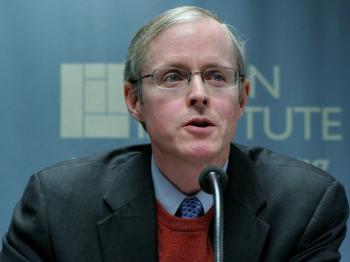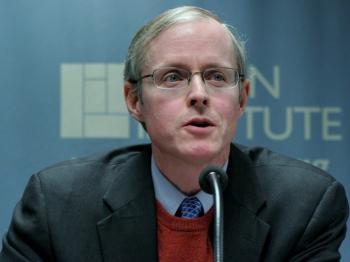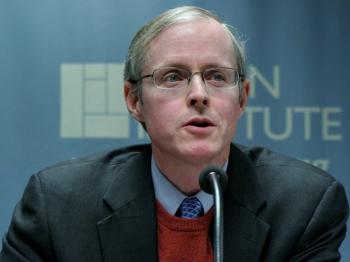Economics 101: Economics Explained to Non-Economists
A panel of hands-on economists explain the common mistakes people make regarding economics.

Economic journalist Greg Ip likes to explain the inside jargon and abstruse economic theory used in the economic news reporting. Formerly a reporter for the Wall Street Journal, he is the U.S. economics editor of the Economist and author of 'The Little Book of Economics: How the Economy Works in the Real World.' He spoke Feb. 1 at the Urban Institute. Gary Feuerberg/The Epoch Times
|Updated:





